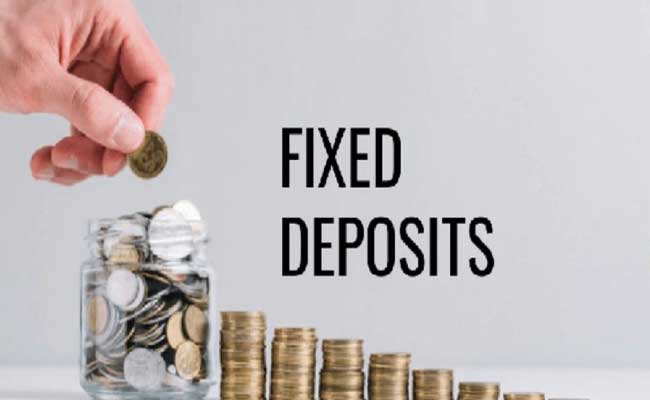Bank Fixed Deposits: A Secure Investment Option
Investing your money is essential to grow your wealth over time. There are many investment options available in the market, but choosing the right investment option can be a daunting task. One such investment option is Bank Fixed Deposits (FDs). In this article, we will discuss Bank Fixed Deposits in detail and how they can be a secure investment option.
What is a Bank Fixed Deposit?
A Bank Fixed Deposit is a type of investment where you deposit a fixed amount of money for a specific period of time, ranging from a few months to a few years. The interest rate offered by the bank is fixed, and you earn interest on your investment at regular intervals, usually quarterly or annually. The interest rate on Bank FDs is usually higher than the interest rate offered by savings accounts.
Types of Bank Fixed Deposits
There are two types of Bank Fixed Deposits: Regular FD and Tax-saving FD.
Regular FD: In a regular FD, you deposit a fixed amount of money for a specific period of time, ranging from a few months to a few years. The interest rate offered by the bank is fixed, and you earn interest on your investment at regular intervals, usually quarterly or annually. You can choose the duration of the FD, and the interest rate offered by the bank usually depends on the duration of the FD.
Tax-saving FD: Tax-saving FD is a type of Bank FD where you can claim a tax deduction under Section 80C of the Income Tax Act, 1961. The minimum lock-in period for a tax-saving FD is five years, and the maximum investment amount is Rs. 1.5 lakhs per annum.
Benefits of Bank Fixed Deposits
- Safe Investment Option: Bank Fixed Deposits are a safe investment option as they are offered by banks, which are regulated by the Reserve Bank of India (RBI). The RBI ensures that the banks follow strict guidelines while offering Bank FDs to customers, and hence, your investment is safe and secure.
- Fixed Returns: Bank Fixed Deposits offer fixed returns, which means that you know the exact amount of return you will receive at the end of the FD tenure. The interest rate on Bank FDs is fixed, and hence, you can plan your finances accordingly.
- Flexible Tenure: Bank Fixed Deposits offer flexible tenure, ranging from a few months to a few years. You can choose the duration of the FD based on your financial goals and requirements.
- High-Interest Rate: Bank Fixed Deposits offer higher interest rates compared to savings accounts. The interest rate offered by the bank usually depends on the duration of the FD. The longer the duration of the FD, the higher the interest rate offered by the bank.
- Liquidity: Bank Fixed Deposits offer liquidity as you can break the FD before the maturity period. However, there may be a penalty charged by the bank for breaking the FD before the maturity period.
- Loan against FD: You can take a loan against your Bank Fixed Deposit. The loan amount usually ranges from 80% to 90% of the FD amount, and the interest rate charged on the loan is usually lower than other types of loans.
Disadvantages of Bank Fixed Deposits
- Low Returns: Bank Fixed Deposits offer low returns compared to other investment options like mutual funds, stocks, and real estate. The returns on Bank FDs are fixed, and hence, they may not beat the inflation rate.
- Taxation: The interest earned on Bank FDs is taxable as per the income tax slab rate of the investor. Hence, the returns on Bank FDs may be lower after taxation.
- Penalty for Premature Withdrawal: If you withdraw the Bank FD before the maturity period
![]()






One thought on “Bank Fixed Deposits”